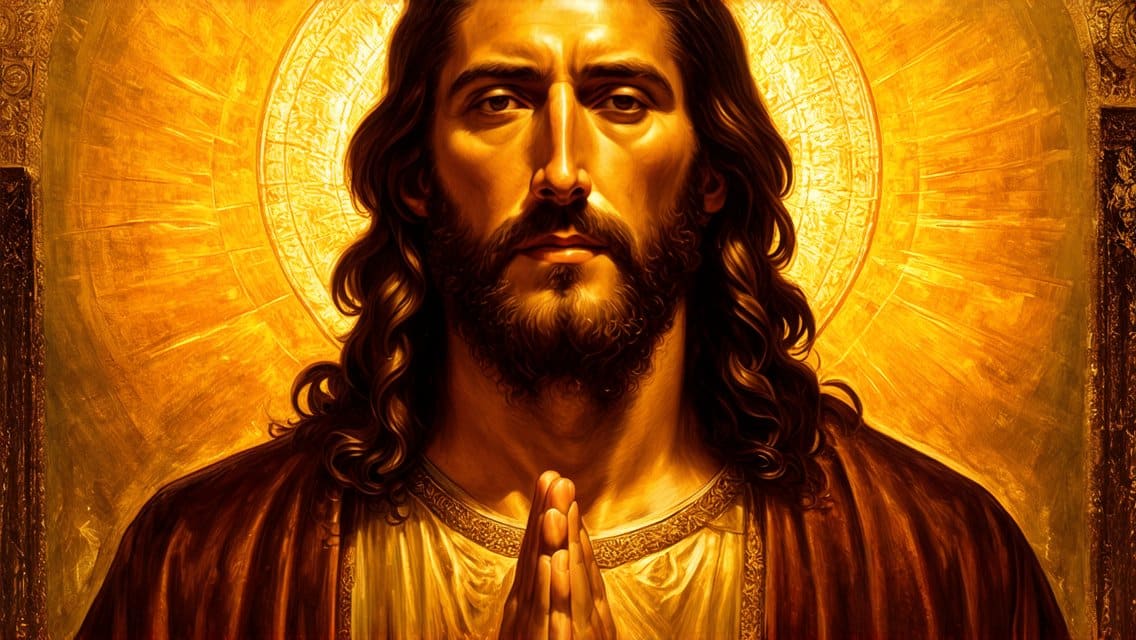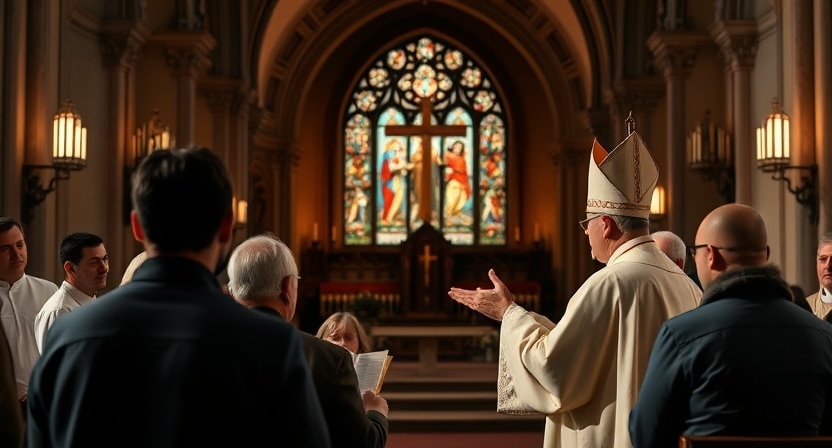SIXTH SUNDAY OF THE ORDINARY TIME YEAR A
Our inner sins
INTRODUCTION AND CONFITEOR
Many people, who confess their sins, confess only the things they have done wrong. But Christ tells us that we can sin even if we never commit the external act.
We can sin in our thoughts, desires, motives, and attitudes. Sin comes from within, and it has deep roots in each of us. Let us think about this for a moment. [Pause]
Let us confess all our sins, the one we are aware of and the ones we are unaware of.
I confess to almighty God .
HEADINGS FOR READINGS
First Reading (Eccles 15:15-20). God wants us to do good, not evil. Nevertheless, he leaves us free to choose one or the other. With the help of his grace, however, we can choose the good.
Second Reading (1 Cor 2:6-10). Paul says a beautiful thing which should fill us with joyful hope. He says: ‘No eye has seen, no ear has heard all that God has prepared for those who love him.’
Gospel (Matthew 5:17-37). The Scribes and Pharisees were considered to be models of virtue. Yet Christ said: ‘Unless your virtue goes deeper than that of the Scribes and Pharisees, you will not see the Kingdom of Heaven.’
Reading 1 Sir 15:15-20
If you choose you can keep the commandments, they will save you;
if you trust in God, you too shall live;
he has set before you fire and water
to whichever you choose, stretch forth your hand.
Before man are life and death, good and evil,
whichever he chooses shall be given him.
Immense is the wisdom of the Lord;
he is mighty in power, and all-seeing.
The eyes of God are on those who fear him;
he understands man’s every deed.
No one does he command to act unjustly,
to none does he give license to sin.
Responsorial Psalm Ps 119:1-2, 4-5, 17-18, 33-34
R. (1b) Blessed are they who follow the law of the Lord!
Blessed are they whose way is blameless,
who walk in the law of the LORD.
Blessed are they who observe his decrees,
who seek him with all their heart.
R. Blessed are they who follow the law of the Lord!
You have commanded that your precepts
be diligently kept.
Oh, that I might be firm in the ways
of keeping your statutes!
R. Blessed are they who follow the law of the Lord!
Be good to your servant, that I may live
and keep your words.
Open my eyes, that I may consider
the wonders of your law.
R. Blessed are they who follow the law of the Lord!
Instruct me, O LORD, in the way of your statutes,
that I may exactly observe them.
Give me discernment, that I may observe your law
and keep it with all my heart.
R. Blessed are they who follow the law of the Lord!
Reading 2 1 Cor 2:6-10
Brothers and sisters:
We speak a wisdom to those who are mature,
not a wisdom of this age,
nor of the rulers of this age who are passing away.
Rather, we speak God’s wisdom, mysterious, hidden,
which God predetermined before the ages for our glory,
and which none of the rulers of this age knew;
for, if they had known it,
they would not have crucified the Lord of glory.
But as it is written:
What eye has not seen, and ear has not heard,
and what has not entered the human heart,
what God has prepared for those who love him,
this God has revealed to us through the Spirit.
For the Spirit scrutinizes everything, even the depths of God.
Alleluia Mt 11:25
R. Alleluia, alleluia.
Blessed are you, Father, Lord of heaven and earth;
you have revealed to little ones the mysteries of the kingdom.
R. Alleluia, alleluia.
Gospel Mt 5:17-37 or 5:20-22a, 27-28, 33-34a, 37
Jesus said to his disciples:
“Do not think that I have come to abolish the law or the prophets.
I have come not to abolish but to fulfill.
Amen, I say to you, until heaven and earth pass away,
not the smallest letter or the smallest part of a letter
will pass from the law,
until all things have taken place.
Therefore, whoever breaks one of the least of these commandments
and teaches others to do so
will be called least in the kingdom of heaven.
But whoever obeys and teaches these commandments
will be called greatest in the kingdom of heaven.
I tell you, unless your righteousness surpasses
that of the scribes and Pharisees,
you will not enter the kingdom of heaven.

“You have heard that it was said to your ancestors,
You shall not kill; and whoever kills will be liable to judgment.
But I say to you,
whoever is angry with his brother
will be liable to judgment;
and whoever says to his brother, ‘Raqa,’
will be answerable to the Sanhedrin;
and whoever says, ‘You fool,’
will be liable to fiery Gehenna.
Therefore, if you bring your gift to the altar,
and there recall that your brother
has anything against you,
leave your gift there at the altar,
go first and be reconciled with your brother,
and then come and offer your gift.
Settle with your opponent quickly while on the way to court.
Otherwise your opponent will hand you over to the judge,
and the judge will hand you over to the guard,
and you will be thrown into prison.
Amen, I say to you,
you will not be released until you have paid the last penny.
“You have heard that it was said,
You shall not commit adultery.
But I say to you,
everyone who looks at a woman with lust
has already committed adultery with her in his heart.
If your right eye causes you to sin,
tear it out and throw it away.
It is better for you to lose one of your members
than to have your whole body thrown into Gehenna.
And if your right hand causes you to sin,
cut it off and throw it away.
It is better for you to lose one of your members
than to have your whole body go into Gehenna.
“It was also said,
Whoever divorces his wife must give her a bill of divorce.
But I say to you,
whoever divorces his wife – unless the marriage is unlawful –
causes her to commit adultery,
and whoever marries a divorced woman commits adultery.
“Again you have heard that it was said to your ancestors,
Do not take a false oath,
but make good to the Lord all that you vow.
But I say to you, do not swear at all;
not by heaven, for it is God’s throne;
nor by the earth, for it is his footstool;
nor by Jerusalem, for it is the city of the great King.
Do not swear by your head,
for you cannot make a single hair white or black.
Let your ‘Yes’ mean ‘Yes,’ and your ‘No’ mean ‘No.’
Anything more is from the evil one.”
or
Jesus said to his disciples:
“I tell you, unless your righteousness surpasses
that of the scribes and Pharisees,
you will not enter the kingdom of heaven.
“You have heard that it was said to your ancestors,
You shall not kill; and whoever kills will be liable to judgment.
But I say to you,
whoever is angry with brother
will be liable to judgment.
“You have heard that it was said, You shall not commit adultery.
But I say to you,
everyone who looks at a woman with lust
has already committed adultery with her in his heart.
“Again you have heard that it was said to your ancestors,
Do not take a false oath,
but make good to the Lord all that you vow.
But I say to you, do not swear at all.
Let your ‘Yes’ mean ‘Yes,’and your ‘No’ mean ‘No.’
Anything more is from the evil one.”
HOMILY
When we examine our conscience we rarely look at our internal sins. We concentrate almost totally on our external ones – our words and deeds. We tend to ignore our internal sins – our bad attitudes, intentions, and desires. Yet these may be our worst sins, and the root cause of most of our external ones. We look at the ripples or waves on the surface, and ignore the current underneath. An illustration may help.
I know a driver. His licence has never been endorsed. As far as the law is concerned his slate is clean. And since he has never been in a serious accident, he enjoys a no claims bonus with his insurance company. One might assume then that we are dealing with a model driver. Not so. In fact he is a terrible driver, and I’ll tell you why. It’s not that he does any big wrongs on the road. He doesn’t break all the rules or anything like that. No. He’s far too shrewd for that. Rather, it’s his whole attitude that’s wrong. He drives as if he owns the road. You know the type!
He hasn’t a shred of road courtesy. He would never yield the right of way to anyone. He is totally inconsiderate. He is careless in a whole lot of small ways. Often he doesn’t bother to give signals. He frequently drives in the wrong lane. At night he seldom dips his headlights for on-coming traffic. That kind of thing.
He is very impatient with other drivers. He loses his temper at the least thing and shouts and screams at them. He is always in a hurry, with the result that you can never relax with him. Risks mean very little to him. He often pulls out or overtakes in dangerous situations. When other drivers blow their horns at him, he tells them where to go in no uncertain terms. They are wrong, not he. He thinks nothing of driving when he has had too much to drink.
I could go on, but I’ll stop here. So there you have him. I think you will agree that he is not a good driver. In some ways he is a menace on the roads, and I believe that it is only luck that has prevented him from having a serious accident. I know that he has had a number of narrow escapes. I once told him to his face that I thought he was a lousy driver, and he was highly offended. He defended himself like this: ‘I’ve been driving for some ten years, and I’ve never had a serious accident. A few minor scrapes, yes, but I’ve never had to write off a car or anything like that. How many drivers could say the same?’ He genuinely believes he is a good driver. His guiding rule is simple: keep out of serious accidents. Anything else – like hurting the feelings of other road users, or annoying them or frightening them – doesn’t enter into his thinking.
It is possible to avoid serious accidents and still be a bad driver. In the Gospel today, Christ tells us that it is possible to avoid committ


